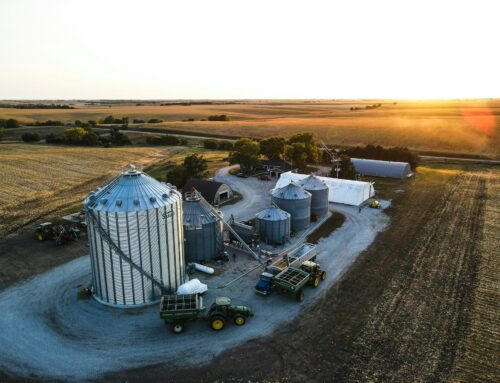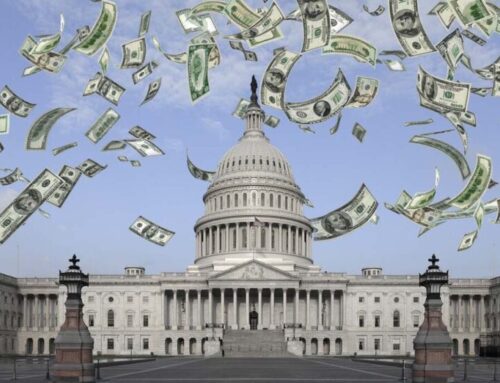Much of Washington has ground to a halt after being buried by an epic series of snowstorms over the last week. But despite the wheels of the government turning slower, many lawmakers have been working to plow their way through taxpayer wallets.
For months Senators Cochran (R-MS) and Lincoln (D-AR) have led an effort to shovel more taxpayer subsidies to agricultural regions facing economic hardships due to droughts or floods. And just this Thursday, an even more bloated version of agriculture disaster relief hopped onboard the Senate Finance Committee’s proposed draft jobs bill . Tucked amongst the various tax cuts and spending provisions was $1.5 billion for everything from farmers facing drought or flood loss, to fish farmers facing rising feed costs, to poultry producers who suffered from the bankruptcy of chicken producer Pilgrim's Pride Company.
Taxpayers caught a break when Majority Leader Reid (D-NV) jettisoned the Finance Committee smorgasbord bill for a significantly scaled-back jobs bill. But you can be sure the politically popular disaster aid will reappear. The bigger problem is there should be no need for these ad-hoc emergency agriculture aid bills.
We have a steady accumulation of emergency funding bills to address natural disasters, or rising feed costs, or other unforeseen needs for agriculture. Yet, in the 2008 Farm Bill, Senate negotiators added a provision creating a permanent agricultural assistance disaster title. Estimated to cost $3.8 billion , supporters of this provision claimed its inclusion would help obviate the need to pass future emergency bills to help farmers and ranchers during the natural disasters that inevitably occur somewhere every year. But as we predicted , farm state senators and representatives keep coming back for more.
And like the four foot drifts swirling around in the snow storm, the number of beneficiaries covered by these agricultural giveaways seem to grow with every piece of new legislation. The legislation proposed last year specified coverage for producers in declared disaster counties, certain specialty crops, livestock operations, and “first-handlers of the 2009 crop of cottonseed.” But three months later the provision has snowballed into one including catfish farmers, Hawaiian sugar producers, and others looking for an avalanche of federal subsidies.
Our elected representatives have the tough job of navigating the moguls presented by various interests strewn about this country. And it’s in our nation’s interest to ensure our farmers are adequately protected from disaster and compensated for putting food on our tables. But the biggest problem with these disaster assistance bills is that they are not based on need or merit, but on political calculation. Continually, we see flurries of activity from members in competitive political races introducing bills that just happen to blanket their states with these additional federal dollars.
As election season shifts into high gear, this veritable blizzard of parochial protection is likely to only increase. Modest attempts by the President to shave direct agriculture subsidies—by decreasing eligibility to those with less than $500,000 adjusted gross income instead of $750,000—are likely to be blown away . Some California lawmakers are seeking to wave the longstanding requirement that the state and local jurisdictions cover their fair share of costs for water projects built in their districts. And members are flexing their legislative muscle to protect potential spending in their own backyards.
While we in the nation’s capitol are digging out from mountains of snow, taxpayers throughout the country are facing mountains of debt. What we cannot afford is for our elected representatives to continue skating along with Washington's business-as-usual parochialism.











Get Social